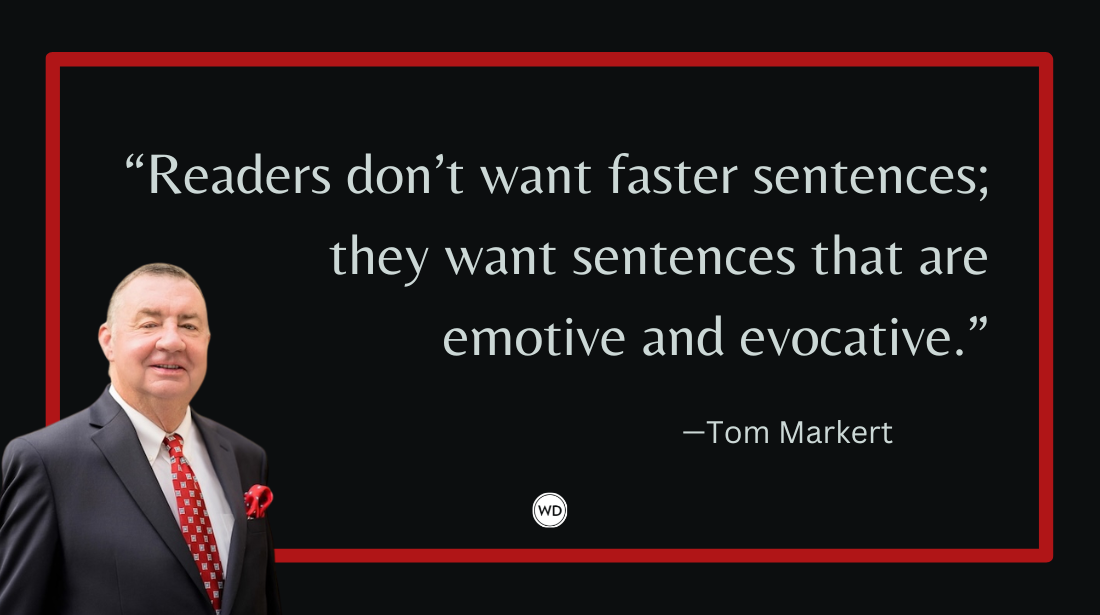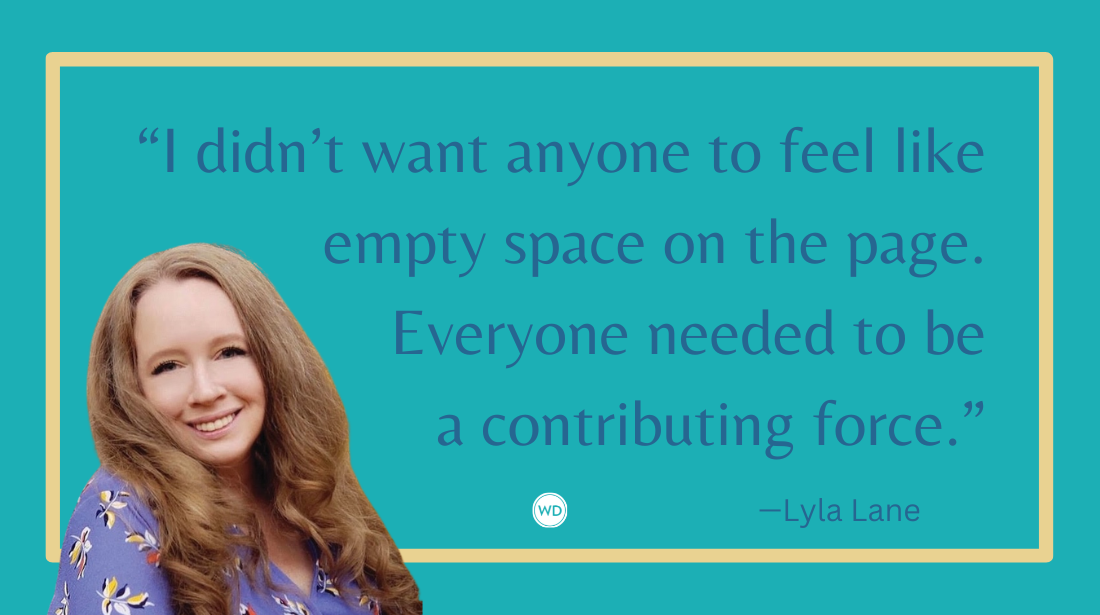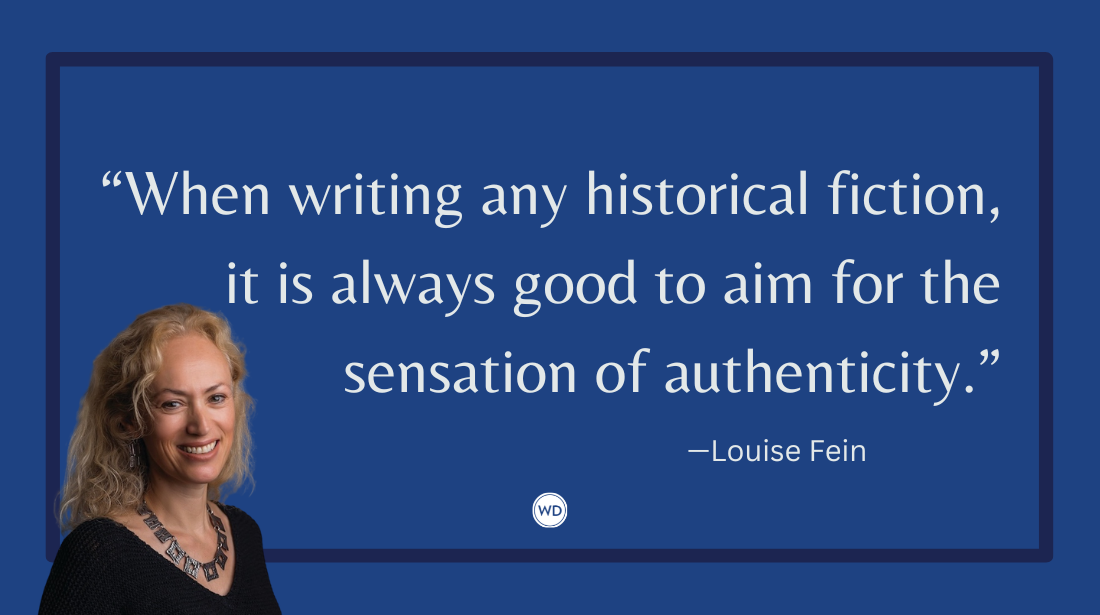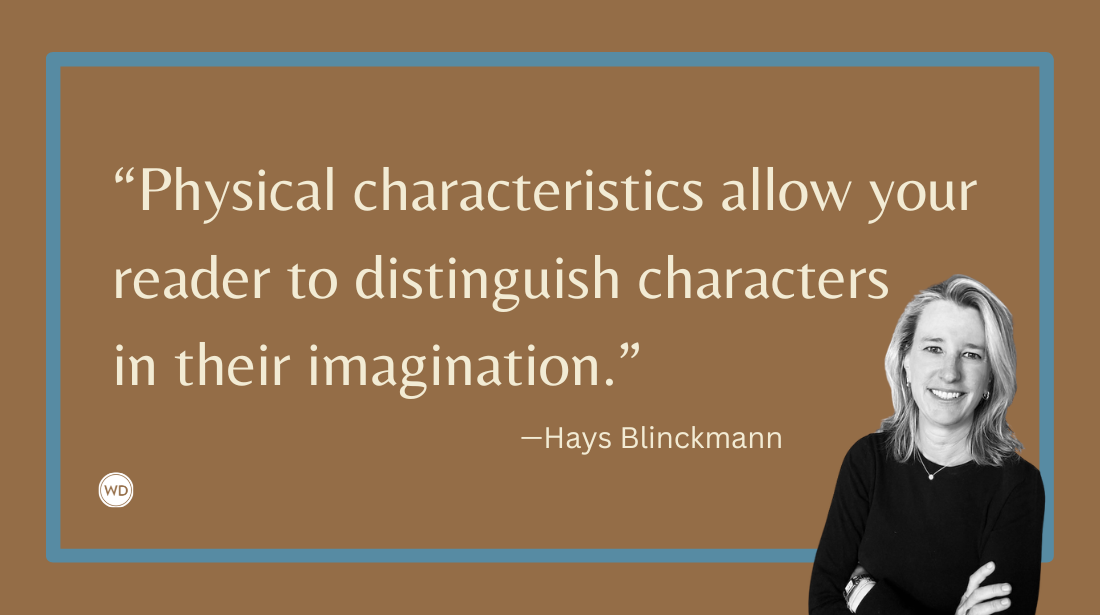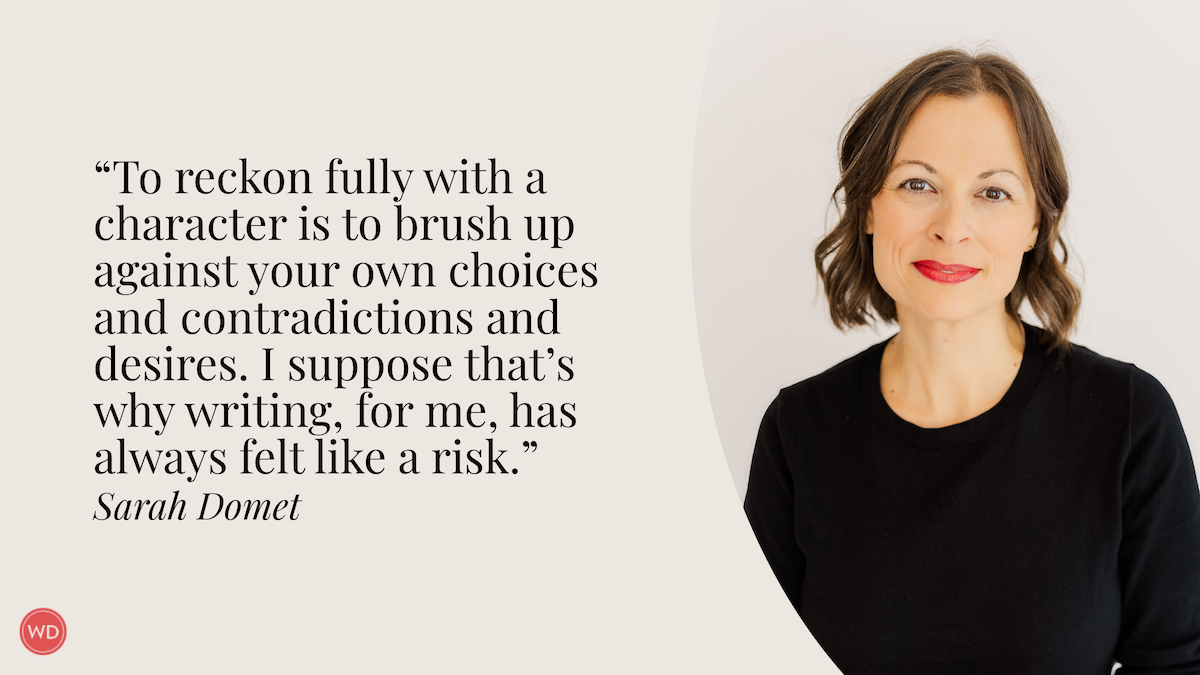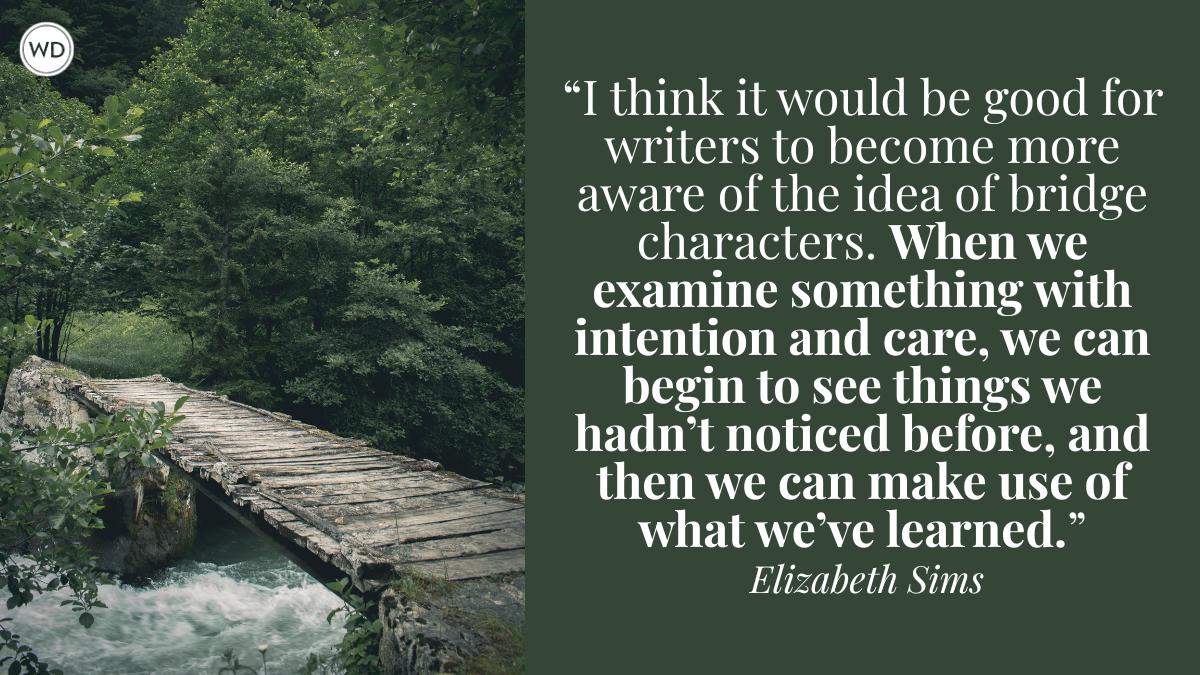Publish Your First Book After 50
Who says publishing is a young person’s game? Here are an agent’s tips for writing and publishing well into your golden years. By Scott Hoffman
If you’re an older author trying to break into the publishing industry, it can be remarkably depressing to constantly hear the latest buzz about breakout novels from writers who aren’t even old enough to buy beer. The phenomenon is nothing new. Christopher Paolini wrote his bestselling novel Eragon when he was only 15. Helen Oyeyemi received a six-figure advance for The Icarus Girl at 20. And Kaavya Viswanathan’s roller coaster ride from literary “it” girl to accused plagiarist began when she was just a sophomore at Harvard University. But these are merely the modern equivalents of Mary Shelley, whose Frankenstein was published when she was 19 years old, and S.E. Hinton, whose iconic first novel, The Outsiders, hit the shelves before her 17th birthday.
As a literary agent who has the opportunity to meet thousands of aspiring authors a year, most of whom have probably gotten an AARP card more recently than a report card, I’m often asked whether there’s a bias in the industry against more seasoned writers. As difficult as it is to publish a first novel at any age, does it become more difficult as you get older?
The honest answer is yes—but you can beat the odds by realizing older writers make a few crucial mistakes that reduce their chances of finding an agent or an editor, which is the essential first step to getting published.
FOUR BIG MISTAKES MATURE WRITERS MAKE
You’ve probably heard the standard advice to avoid falling prey to the mistakes that sabotage uninformed writers regardless of age. You belong to a writing critique group whose members help you polish your work. You read everything you can get your hands on—even books outside of your genre—to learn how other novelists solve the problems that inevitably crop up in writing a first book. And, of course, you’d never send out a query letter with a spelling or grammatical error.
So why do your queries keep getting rejected when other (younger) writers’ don’t? What are you doing wrong? And how do you convince agents and editors to pick up your manuscript and start reading?
“One of the biggest mistakes I see older writers make when they approach agents and editors is they fail to recognize the extent to which publishing is a business,” says Rachel Vater, an agent at Folio Literary Management. “Writing is a career, like any other, that takes time and training to perfect.”
Publishing professionals rely on books from people like you to pay our mortgages and put our kids through college. If you’re not prepared to approach writing as a career, the world of traditional trade publishing might not be for you. If your goal is to memorialize an important family story, or just see your work between two hard covers, there are plenty of reputable print-on-demand publishers to help you achieve that goal.
If, however, you’re absolutely, positively committed to launching a new career as a novelist, there are several critical things you can do to improve your chances of getting an agent or an editor to take your work seriously.
1. AVOID ALL REFERENCES TO THE “R” WORD. “Retirement” conjures up images of mobile homes and leisure time—something you, as a career novelist, are unlikely to have much of once your book is released. When you’re talking to agents and editors, or querying them by mail, you’re not retired. You were, perhaps, most recently an accountant, but your professional situation has fortunately changed, so now you can pursue your literary career on a full-time basis. You’ve distilled your considerable life experience down into a phenomenal book that’s going to have a wide audience. But you didn’t decide to write a book because you had extra time on your hands. (You’d be surprised how many query letters trumpet that motivation.)
2. BE AN ENERGETIC PRESENCE. As Robert Heinlein put it, “There ain’t no such thing as a free lunch.” When your publisher commits to paying an advance for your book, whether it’s $5,000 or $500,000, the publisher wants to know that you’ll be an energetic partner in getting your book into the hands of the people who might want to read it. Several years ago, I tried, without success, to convince publishers to take on a fantastic novel. This book had it all—vibrant characters, an intricate and fast-moving plot, beautiful imagery and brilliant writing. But there was one big problem: The author was dead. And while Robert Ludlum and John Kennedy Toole have managed to sell books from beyond the grave, they’re the exception rather than the rule. To make a novel work—particularly a first novel—publishers need to be certain that you’re going to do all the things it takes to sell books.
That’s because there are several things publishers are very good at, and a few things they’re not at all good at. They’re remarkably skilled at finding good manuscripts and making them better through the editorial process. They’ve perfected the art of designing the covers and interiors of books, printing and warehousing them, and getting those volumes onto bookstores’ shelves.
But publishers aren’t particularly good at convincing any given individual to walk off the street, pick up any specific book, walk to the cash register and plunk down $24.95. That’s where you come in. You have to mercilessly exploit your personal and professional connections to sell books. And that’s hard to do from the golf course at Del Boca Vista.
3. CONVINCE YOUR AGENT AND EDITOR THAT YOU’RE NOT JUST A ONE-TRICK PONY. You’re a career novelist, and you’ve got lots of books in you. You’ve finished one brilliant novel, and are hard at work on your next, which is in the same genre. If you have no desire to ever write another novel, don’t tell your agent or your editor this. Most publishing houses expect an author to publish a novel every year or two in order to build a following, and it’s often a novelist’s fourth or fifth book that hits it big. (The Da Vinci Code, for instance, was Dan Brown’s fourth published novel.) For the same reason, if it took you 40 years to write your first book, the query letter isn’t the place to tell that to an agent or an editor.
4. DON’T DATE YOURSELF. Publishing, remember, is a media business. And like most media businesses, publishers are intent on finding the “next big thing.” There’s absolutely nothing to prevent you, as an older writer, from coming up with something fresh, new and exciting—but the bias that older people are less likely to do so remains. A little camouflage goes a long way here. Even if you’re writing, say, a war story, don’t mention your service in the Korean War or World War II. If you’re writing a political thriller, don’t mention your service in the Roosevelt Administration.
By all means, though, do convey relevant credentials in a manner that doesn’t date you.
REVEALING THE TRUTH
So when is it time to actually let your agent or editor know how old you really are? There are two times when you absolutely have to divulge this. The first is when someone asks. Never lie. People in the publishing business have often been burnt by dishonest authors, and they want to make sure it doesn’t happen again.
The other time to let your agent or editor know your age is when you think it might help. When there’s a question about your experience or credentials, it’s appropriate to fill in the details that show exactly why you’re the right person to write this specific book. But those questions don’t usually come until someone has read your entire novel or your nonfiction book proposal.
The ultimate goal, of course, is to get an agent or editor to read your book. An agent or an editor will either love your work, or won’t. And if not? Well, try another agent.
But remember to take heart, and keep at it. Very few novelists publish the first book they write. Most of the published novelists I work with have one, two or even three “drawer novels”—books on which they honed their craft, but that weren’t good enough to publish. If there are no takers on your first book, keep going. Is it a lot of work? Absolutely. But almost any first-time novelist will tell you it’s worth it when you get the phone call that your book is (finally!) going to be published.
And if there’s any doubt that older novelists can succeed, keep this in mind. Anna Sewell didn’t sell the classic novel Black Beauty to her publisher until she was 57. Karen Blixen, the Danish author who wrote under the pen name Isak Dinesen, didn’t publish her first book until 50—and her blockbuster, Out of Africa, hit the market when she was 52. Laura Ingalls Wilder, the beloved author of the Little House on the Prairie series, didn’t have her first book published until she was well into her 60s. Richard Adams, author of the children’s classic Watership Down, remained unpublished until he was in his 50s.
And take inspiration from the Bangladeshi writer Nirad Chaudhuri. His first book, The Autobiography of an Unknown Indian, was published in 1951, when he was 54 years old. Its sequel hit the market in 1988, when he was 90. And his final book, Three Horsemen of the New Apocalypse, was published in 1997—when he was 100.
What to know what plots work best in novels? Consider:
20 Master Plots
Become a WD VIP and Save 10%:
Get a 1-year pass to WritersMarket.com, a 1-year subscription to Writer's Digest magazine and 10% off all WritersDigestShop.com orders! Click here to join.
Also check out these items from the Writer's Digest's collection:
Writer's Digest Elements Of Writing Fiction: Beginnings, Middles & Ends
Writer's Digest Elements Of Writing Fiction: Scene & Structure
Writer's Digest Elements Of Writing Fiction: Conflict, Action & Suspense
Writer's Digest Elements Of Writing Fiction: Description
Writer's Digest Elements Of Writing Fiction: Characters & Viewpoint
Writer's Digest No More Rejections
Writer's Digest Weekly Planner
Writer's Digest How to Land a Literary Agent (On-Demand Webinar)
Writer's Digest Magazine One-Year Subscription
Writer's Digest 10 Years of Writer's Digest on CD: 2000-2009
Scott Hoffman is an agent with Folio Literary in NYC.




